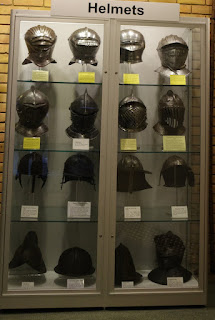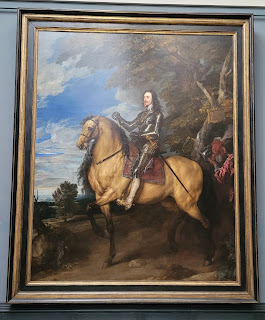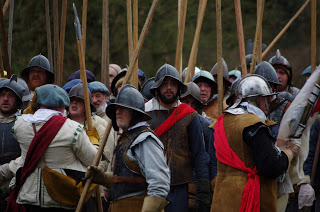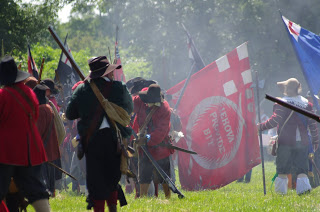Comments
Sorry regular readers, comments and the contact form have temporarily been turned off.
Why? A YouTube 'content creator' has put a direct link in his description to my post about Newark Upon Trent.
Why has he done that? Because I posted a picture of an information panel from Newark Castle, which features an image of a man of African descent. An information panel that I did not write or have any hand in creating.
The man pictured is an actor, portraying a man called John Americanus, who fought for the King at Newark. John's role in the defence of Newark is well documented. And yes, John was of African descent.
The National Civil War Centre created a Civil War Trail around the town, information panels are located at points of interest. These panels feature QR codes which accessed features on a now defunct smartphone app. Each location also featured an eye witness account - stories from real people who witnessed the events in Newark. Each information panel has a photographic representation of the person whose story was told in the app. The Castle's eyewitness account was John Americanus. Unfortunately there's no mention of these eyewitness testimonies on the information panel themselves.
Without this context, it is perfectly reasonable to ask why there is an image of a man of African descent illustrating the Civil War. What is not okay is trotting out racist tropes.
If you would like more evidence of people of African origin living and fighting in the Wars of the Three Kingdoms might I suggest you look here.
So now my inbox is filling up with thinly veiled racist comments, accusing me of being 'woke'. If you mean 'educated, caring, compassionate and generally a decent human being', feel free to call me 'woke' as much as you want.
Now where's the rolls eyes emoji when you need it?
As it needs pointing out to those of you who follow the YT channel in question, this isn't the Newark National Civil War Centre's website. This is a blog about painting toy soldiers and visiting sites connected to the Wars of the Three Kingdoms.
So take your racist comments and feck off. When you get there feck off a bit more. Then, keep going. You'll probably start worrying that you'll fall off the edge of the world. Unfortunately not. This may come as a shock to you, but we discovered that the world is spherical a long long time ago.











Comments
Post a Comment